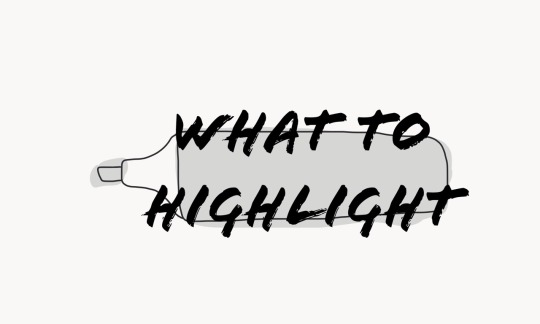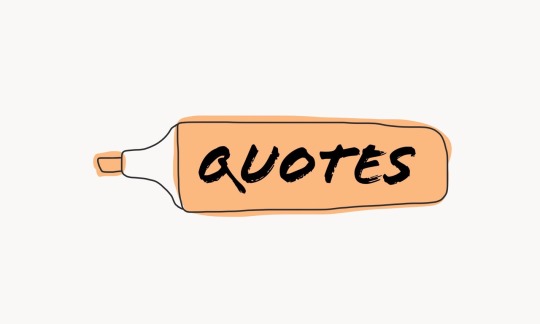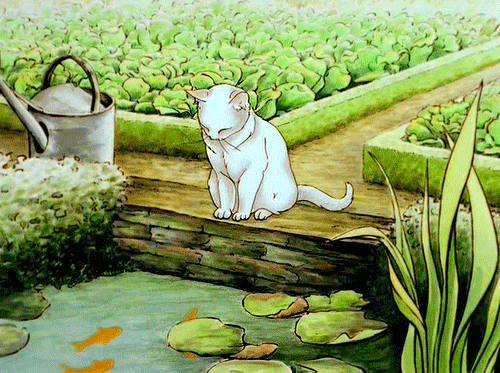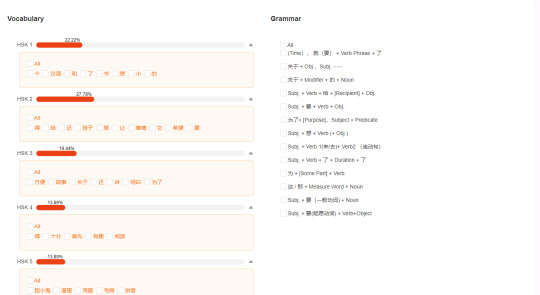Text
Two Tanka
by Otomo No Yakamochi
From outside my house,
only the faint distant sound
of gentle breezes
wandering through bamboo leaves
in the long evening silence.
Late evening finally comes:
I unlatch the door
and quietly
await the one
who greets me in my dreams.
165 notes
·
View notes
Text
Why didn't I learn to treat everything like it was the last time. My greatest regret was how much I believed in the future.
— Jonathan Safran Foer, Extremely Loud and Incredibly Close
7K notes
·
View notes
Text
“Half of me is here, the half that never leaves you, half is far away.”
— Haiku on Life by Tyler Knott Gregson
554 notes
·
View notes
Text

Hey guys, so just as a heads up, I don’t think that highlighting your already made notes is that effective unless it’s for aesthetic. However for many subjects like English classes or humanities, you are often given a bulk amount of readings and I believe that highlighting not only helps you digest the content but it also makes note taking easier afterwards. Though some people find it hard to figure out what they need to be highlighting so I’ve come up with a few ideas.

Terms often come into play when digesting a lot of textbook readings where ideas are being explained to you and often you will want this definition to be readily available when revising too so its good to highlight these when you come across them.

Key concepts can be really good to highlight when trying to understand scientific concepts within research articles or when reading persuasive texts as you can relate the material back to your core unit of work. Alternatively you can use concept to highlight the main idea of paragraphs or chapters to give you a quick reference of summary when studying.

I find examples to come particularly handy in studies which are applied to everyday situations, for example a law textbook may discuss a concept and give an applicable example which I would then highlight. Or in math you may highlight an example problem to help you if you get stuck later.

This highlighter was a godsend in my last exams, especially for history because I’d be reading so many historians and articles and when it came to writing essays it would only take me seconds to find a good reinforcing quote as I’d been highlighting them all along. Or even in English you can highlight quotes from reviews or scholars to be used to back up your argument.

This one is mainly for English and literature studies because when analysing devices and giving examples of these it helps when they are already highlighted. It’s all about studying smarter not harder and getting things done efficiently so this step really has helped me out.

Again another more humanities point as you often have to create a mental catalogue of people involved and the context of situations to understand the severity of moments in history. Though in science and other subjects it’s always good to know what pages are talking about what professors or scholars or historical figures.

Finally, in many subjects you are expected to produce a mental timeline of events especially in history and it becomes confusing to pinpoint events and dates together so this step helps to take the labour out of that situation.
I hope this helps you guys out. I also like to just make a key for my highlighting that I use for a bookmark, that way I can constantly refer to it. Message me if you have any ideas or things you want me to post about.
5K notes
·
View notes
Note
Off of your Iraq/Iran War recent reading, what are some good books on Saddan Hussein, The Persian Gulf War, or the recent Iraqi conflicts?
There are so many great books on those subjects that this list will be by no means exhaustive -- especially when it comes to the Iraq War that started in 2003, which continues to be the source of some fantastic writing by historians and journalists.
•The book I recently mentioned, The Iran-Iraq War, written by Pierre Razoux and translated by Nicholas Elliott (Belknap Press of Harvard University/2015/BOOK | KINDLE) is easily the best single-volume book I’ve read on the Iran-Iraq War. It’s intensely researched and certainly not basic, but still very easy to read as opposed to many of the other books I’ve read on that war. To put it another way: it’s the least textbook-ish history of the Iran-Iraq War while remaining a comprehensive study of the conflict.
•Saddam: His Rise and Fall by Con Coughlin (Ecco/2005/BOOK | KINDLE) is one of the most definitive biographies that I’ve been able to find on Saddam Hussein. It was published after his capture but prior to his trial and execution, so it’s ready for an update, but Coughlin reveals a lot about his early life, rise to power, and tyranny.
•The Prisoner in His Palace: Saddam Hussein, His American Guards, and What History Leaves Unsaid by Will Bardenwerper (Scribner/2018/BOOK | KINDLE) and Debriefing the President: The Interrogation of Saddam Hussein by John Nixon (Blue Rider Press/2016/BOOK | KINDLE): While Coughlin’s book is a full biography of Saddam that basically leaves off immediately after his capture, both of these books focus on Saddam’s life after capture as he was held in American custody while Iraq’s fledgling post-Ba’ath Party government put him on trial for his crimes against humanity. Both books are remarkable viewpoints into a dictator trying to adjust to a life without the absolute power he had enjoyed for decades while also fighting for his life. What I found most fascinating about both titles but particularly with Bardenwerper’s book are the descriptions of Saddam’s mercurial personality, which ranges from delusional autocrat and sociopath to, quite frankly, a seemingly likable and surprisingly open simple, rural Arab. But most the time it’s also clear in both books that Saddam was an extraordinarily intelligent and clever tyrant who believed he was the rightful President of Iraq until the moment he was hanged.
•Crusade: The Untold Story of the Persian Gulf War by Rick Atkinson (Mariner Books/1994/BOOK): Rick Atkinson, who won a Pulitzer Prize for the first volume of his trilogy of World War II books, has never written a book about military history that wasn’t awesome. This book -- the best single-volume history of the 1991 Gulf War -- is no exception. Atkinson also wrote a book about the 101st Airborne’s early action in the second Iraq War that’s worth checking out -- In the Company of Soldiers: A Chronicle of Combat (Picador/2005/BOOK | KINDLE).
•The Great War for Civilisation: The Conquest of the Middle East by Robert Fisk (Vintage/2007/BOOK | KINDLE): This isn’t solely a book on Iraq, it’s a bigger story of the whole Middle East along with Fisk’s memoirs as a correspondent reporting from the region for nearly 45 years. However, Fisk’s reporting from on the ground during the Iran-Iraq War is a big part of the book and worth your time if you’re interested in that conflict.
Again, as I mentioned, there are so many great books on the Iraq War and Iraq post-2003 that I can’t list them all and I’ll forget to mention some that definitely deserve recommendation, but I’ll close out the list with a handful of other suggestions on that subject:
•The Forever War by Dexter Filkins (Vintage/2009/BOOK | KINDLE)
•The Fall of Baghdad by Jon Lee Anderson (Penguin Books/2005/BOOK | KINDLE)
•Fiasco: The American Military Failure in Iraq by Thomas E. Ricks (Penguin Books/2007/BOOK | KINDLE)
•The Assassins’ Gate: America in Iraq by George Packer (Farrar, Straus and Giroux/2006/BOOK | KINDLE)
•Cobra II: The Inside Story of the Invasion and Occupation of Iraq by Michael R. Gordon and Bernard E. Trainor (Vintage/2007/BOOK | KINDLE)
•Imperial Life in the Emerald City: Inside Iraq’s Green Zone by Rajiv Chandrasekaran (Vintage/2007/BOOK | KINDLE)
16 notes
·
View notes
Text
Just an experiment. Reblog if you actually give a fuck about male victims of domestic violence and rape.
Of fucking course
What sick bastard doesn’t
2M notes
·
View notes
Text
Dark Academia Books for Students of Politics and International Relations:
I mean, heck, I am no expert but my need to see this niche ass post is a lot so here goes.
The Prince: Machiavelli- do I NEED to explain this one. Its a seminal text in politics and political philosophy and when you listen to the ideas described in it they can sound a little crazy but once you read it you realise they are still crazy but grounded in something very real. Also its short as heck and an easy read.
Politics among Nations: The Struggle for Power and Peace- Hans J Morgenthau. I had to pick this one up for my coursework last semester and I thought it would be a snooze fest but no. I was drawn in and I haven’t finished it since but I do plan to get back to it at my leisure.
The End of History and the Last Man: Francis Fukuyama- YES, I fundamentally disagree with Fukuyama on so many points. YES, it is still one of my favourite books of all time. it is a very riveting discussion of political philosophy, history and international relations. If you are interested in any of those topics, pick it up. You won’t regret it.
How Democracy Ends: David Runciman- captivatingly written, great arguments, and a very unique voice. Super relevant in today’s international political atmosphere and if you are interested in studying the rise of right wing authoritarian governments across the globe, this is a great place to start.
Thomas Hobbes: Leviathan- another one that I just feel like i don’t need to explain. Again haven’t read it fully yet, but its quite chill inducing and the basis for most of the contemporary discussion on state, liberalism, authoritarianism, rights and so forth.
These were just my recommendations, and I by no means claim that they cover the entire gamut of the field. In fact, I would consider myself a noob still where texts relating to politics or IR are concerned, so feel free to give your recommendations and opinions as well!
9K notes
·
View notes
Note
What are your favorite Arabic poems, if you have any?
These are some of my favorites:
An Ocean Without Shore, Ibn ‘Arabi
Fragment from Al-Buhturi’s Wolf
From the Luzumiyat of al-Ma’arri
From the Diwan of al-Ma’arri
Reality, Rabia al-Basri
Love, Rabia al-Basri
The Enchanter of Dust: Psalm, Adonis
The Wound, Adonis
I Pray Behind My Shadow, Bahija Massri Adelbi
The Spirit Bows to the Will of Love, Munir Mezyed
The Manner of Sand, Mahmood al-Braikan
Exculpation, Khalil Mutran
Revolt Against the Sun, Nazik al-Mala’ika
Myths, Nazik al-Mala’ika
Who am I?, Nazik al-Mala’ika
A Stranger at the Gulf, Badr Shakir al-Sayyab
An Alphabetical Formation, Faraj Bayraqdar
A couple of fragments from Sanieh Salh
Sorrows of the Black City, Muhammad al-Fayturi
Shadows, Wadih Sa’adah
The Strange Grief, al-Shabbi
A Storm in the Dark, al-Shabbi
A Body, Al-Saddiq al-Raddi
Annihilation, Muhammad Afifi Matar
Fragments from ‘Quartet of Joy’, Muhammad Affifi Matar
Mural, Mahmoud Darwish
We Will Choose Sophocles, Mahmoud Darwish
Clouds, Ounsi el-Hajj
Smoke Bloom, Nadia Anjuman
Boat to Lesbos, Nourri al-Jarrah
Your body is my map, Nizar Qabbani
18K notes
·
View notes
Text
Indian academia
Recently I have seen a lot of excellent posts in the dark academia tags which call out the euro-centrism of this subculture and also give great recommendations for non-white cultural academia. So I decided to put together works of Indian authors that I read growing up in India as a literature student. Please note this list leans heavily towards works centred on Bengal due to my own heritage, and is by no means comprehensive or meant to represent the entire, varied diaspora of India.
Historical/political fiction:
the lives of others by neel mukherjee: chronicling the rise and fall of a bengali family against historical events like the partition, the 1943 famines, the bengal emergency etc. diverse cast of characters retelling history through multiple povs, lyrical prose, incredible research providing an insight into naxalite bengal. talks about how it feels to be a leftist when you are born and brought up in bourgeois privilege.
the lowland by jhumpa lahiri: everything!! written by jhumpa lahiri!! should be savoured!! but this gorgeous book in particular made me UGLY CRY. to summarise without spoilers, it's a story about two brothers, separated by inches and then by miles, a story about student revolutionaries, bengal burning and boston beaches, and it's a story about a beautiful, brilliant, tormented woman who loves and loathes in equal measure.
the shadow lines by amitav ghosh:** intergenerational trauma, dhaka riots and the entwined histories of two families- one in london and the other in calcutta. sharp, bittersweet and sometimes rather scandalous. if you enjoy ggm's works try this.
a flight of pigeons by ruskin bond**: after her father is killed in the 1857 sepoy mutiny, an anglo-indian girl, her mother, and female relatives are given shelter by the muslim family of one of the chief rebels. set in north india near UP, ruskin bond's writing is powerful and explores found families and the price of imperialism and war. chef's kiss.
train to pakistan by khuswant singh: the horrors of post independence sectarian violence as recounted by a fictional village on the indo-pak border with a population largely comprising muslims and sikhs. a harrowing read but evocative and honest.
shalimar the clown by salman rushdie: allegorical story about the kashmir valley unrest, told through the insane, shakespearean revenge tragedy spun out by kashmiri tightrope walker shalimar who falls in love with boonyi, a beautiful pandit girl, a love that dooms him.
a fine balance by rohinton mistry**: four strangers' lives spill into each other as india crumbles under the 1975 emergency. this one has everything political commentary, social satire, depiction of economic hardships and a whole range of characters from diverse backgrounds. side note: it's a pretty heavy and tragic read, please be careful.
Societal stories
the guide by rk narayan: raju, an impoverished, street smart boy in a fictional south indian town takes to conning people as a tour guide but things spiral out of control when he has an affair with a married classical dancer. allegorical writing, funny and eccentric, and there's a LOT of satire about desi stereotypes: fraud religious leaders, scandalous village affairs, neocolonial mindsets and well, dancing. had a great read of this one. don't watch the film, it's inaacurate and the author himself didn't like it :(
malgudi days by rk narayan: set in the same town as the guide, a collection of short stories about the colourful lives of small town dwellers, from astrologers to doctors to postmen. it's funny and poignant in equal measure. there's not a single mediocre story in here, they're all just......charming.
interpreter of maladies by jhumpa lahiri: stories set in boston and bengal about ordinary indian people and ordinary indian lives which are just so, so MASTERFULLY written and in such crystal bright detail it feels all too real. I recommend a temporary matter, when mr pirzada came to dine, sexy, mrs sen and this blessed house.
em and the big hoom by jerry pinto**: a goan family in late 20th century mumbai + their experience when the mother is diagnosed with bpd. I haven't read this book but it was highly recommended by my friends + authors who are greatly esteemed by me
any and every work by ruskin bond because my man literally GREW up around ayahs and tonga drivers and lonely gardeners and sad kite-makers and friends in small places. I recommend road to the bazaar: a collection of short stories about north indian children involving tigers in train tunnels, beetle races, rooftop gardens and the feeling of being home again.
the white tiger by aravind adiga**: epistolary novel that deals mostly with the class struggle in india as told by a village boy, who travels to delhi for work and his slow rise to success through monumental obstacles. a good read to look into the lives and the plight of underprivileged workers and the persisting class disparity in globalised india.
city of djinns by william dalrymple: travelogue/memoir/anecdotes of the author's time in delhi as he researches for the detritus of history in the country capital. non fiction but every bit as riveting as a well spun story.
Retellings/Biographies
rajkahini (transl: stories of kings) by abanindranath tagore: stories about the rajput rulers of western india and their glorious, semi-mythological histories of battles and heartbreaks and visions. the author was often termed a lyrical artist because his descriptive prose is so good it feels like a painting put into words.
empress: the astonishing reign of nur jahan by ruby lal: a feminist biography of my favourite figure from history, nur jahan, and her deliciously satisfying ascent as the sole female sovereign in the line of the great mughals. but wow, what a woman.
the palace of illusions by chitra banerjee divakaruni: retelling of the great epic mahabharata but from draupadi's point of view. poetic and magical, and her descriptions of female rage and the unfairness of society even in mythical canon is SUPERB.
Poetry!
sarojini naidu: patriotism, society, feminism, romance
nissim ezekiel: postcolonial, satire
ak ramanujan: society, classical retellings, folktale inspired poetry
agha shahid ali: socio-political, ghazal inspired poetry
tishani doshi: feminist, contemporary
eunice d'souza: contemporary, gender politics
Pure self indulgent recs
hayavadana by girish karnad: a ridiculous, criminally hilarious play-within-a-play about a love triangle and accidental body/torso swaps and a goddess who couldn't care less and a man with a horse head. yeah.
devdas by sarat chandra chattopadhyay: pls stop shoving the movie down my throat it's the cringiest depiction of bengali culture ever but yeah the novel is 💗💗 and it's about childhood sweethearts dev and paro, the cost of obsessions and lusts and an enigmatic courtesan chandramukhi who keeps loving the wrong things.
any and every work by rabindranath tagore should be considered academia but in particular his short stories, like the kabuliwalah and the postmaster.
the byomkesh bakshi series by sharadindu bandyopadhyay: written in the vein of poirot but in colonial bengal, follows one (1) sleuthy boy and his sidekick as they unravel psychological crimes and murder mysteries. some stories are just genuinely scary and all have eclectic casts. sharadindu said homoerotic/feral women/immoral genius people rights!
Like I said this list is not comprehensive!!! But I tried my best!!! I think we should really try to decolonize our reading tastes. And yes I purposely left out Arundhati Roy (because she is literally the only Indian author ever recommended in lists) Vikram Seth (because I do not like him) and Roshani Chokshi (because any one of the above)
I hope you guys get some good picks from this list :)
[** has heavy trigger warnings]
16K notes
·
View notes
Text
Cultural Dark Academia
After my last post about the lack of representation in academia, I felt it neccessary to provide some examples of what I’m talking about. Obviously there are more countries in the world than I can list and provide books for, so for a quick list this is what I got. !! Keep researching !! If you have any more books by POC please reply them !! If a country isn’t listed, that doesn’t mean it’s not important, this is just what I could get together real quick. If I made any mistakes, please let me know, we’re all learning. We need to help each other end eurocentrism in academia, so value representation and educate yourselves 💓💓💓
Chinese:
The Art of War by Sun Tzu
The Dream of the Red Chamber
The Water Margin
Romance of the Three Kingdoms
The Journey to the West
The Scholars
The Peony Pavilion
Border Town by Congwen Shen
Half of Man is Woman by Zhang Xianliang
To Live by Yu Hua
Ten Years of Madness by agent Jicai
The Field of Life and Death & Tales of Hulan River by Xiao Hong
Japanese:
A Personal Matter by Kenzaburo Oë
Pakistani:
Moth Smoke by Mohsin Hamid
How to Get Filthy Rich in Rising Asia by Mohsin Hamid
Ghulam Bagh by Mirza Athar Baig
Masterpieces of Urdu Nazm by K. C. Kanda
Irani/Persian:
Rooftops of Tehran by Mahbod Seraji
Savushun by Simin Daneshvar
Anything by Rumi
The Book of Kings by Ferdowsi
The Rubiyat by Omar Khayyam
Shahnameh (translation by Dick Davis)
Afghan:
Earth and Ashes by Atiq Rahimi
A Thousand Splendid Suns by Khaled Hosseini
Indian:
The God of Small Things by Arundhati Roy
Aithihyamala, Garland of Legends by Kottarathil Sankunni
The Gameworld Trilogy by Samir Basu
Filipino:
Twice Blessed by Ninotchka Rosca
The Last Time I Saw Mother by Arlene J. Chai
Brazilian:
Night at the Tavern by Álvares de Azevedo
The Seven by André Vianco
Don Casmurro by Machado de Assis
Colombian:
Chronicle of a Death Foretold by Gabriel Garcia Marquez
Delirio by Laura Restrepo
¡Que viva la música! by Andrés Caicedo
The Sound of Things Falling by Jim Gabriel Vásquez
Mexican:
Bless Me, Ultima by Rudolf Anaya
Adonis Garcia/El Vampiro de la Colonia Roma by Luis Zapata
El Complot Mongol by Rafael Bernal
Egyptian:
The Cairo Trilogy by Nahuib Mahfouz
The Book of the Dead
Nigerian:
Rosewater by Tade Thompson
Things Fall Apart by Chinua Achebe
Malian:
The Epic of Sundiata
Senegalese:
Poetry of Senghor
Native American:
The Inconvenient Indian by Thomas King
Starlight by Richard Wagamese
Almanac of the Dead by L. Silko
Fools Crow by James Welch
Australian Aborigine:
Dark Emu by Bruce Pascoe
First Footprints by Scott Cane
My Place by Sally Morgan
American//Modern:
Real Life by Brandon Taylor
Namesake by Jhumpa Lahiri
The Hate U Give by Angie Thomas
The Poet X by Elizabeth Acevedo
Internment by Samir’s Ahmed
Their Eyes Were Watching God by Zora Neale Hurtson
Rivers of London Series by Ben Aaronovitch
19K notes
·
View notes
Note
Do you read chinese classical poetry? Do you have any suggestions where to start?
These are some of my favorite poets:
Du Fu
T'ao Ch'ien
Li Bai
Li Qingzhao
Su Shi/Su Tung-p’o
Du Mu (II)
Li Po
You can also start with several collections:
Classic of Poetry/Odes (trans. Ezra Pound)
Nineteen Old Poems
Three Hundred Tang Poems
Songs of the South (this is one of my absolute favorites)
These are some anthology/reference books:
Classical Chinese Poetry: An Anthology, David Hinton
How to Read Chinese Poetry: A Guided Anthology, Zong-qi Cai
Autumn Willows: Poetry by Women of China’s Golden Age, Bannie Chow, Thomas Cleary
Mountain Home: The Wilderness Poetry of Ancient China, David Hinton
Li Po and Tu Fu: Poems, Arthur Cooper; Shui Chien-Tung
Three Chinese Poets: Translations of poems by Wang Wei, Li Bai, and Du Fu, Vikram Seth
Five T’ang Poets, David Young
Personally, I started with an anthology of Du Fu’s poetry (in Spanish, here - also several Tang poets), and then started reading the collections by David Hinton and Vikram Seth. Afterwards, I continued with Li Po, Li Qinzhao, Su Shi, and the classical Tang poetry collections.
4K notes
·
View notes
Text
How to learn a language when you don’t know where to start:
General Plan:
Weeks 1 and 2:
Purpose:
Learn the fundamentals sentence construction
Learn how to spell and count
Start building a phrase stockpile with basic greetings
The Alphabet
Numbers 1 - 100
Subject Pronouns
Common Greetings
Conjugate the Two Most Important Verbs: to be and to have
Basic Definite and Indefinite Articles
Weeks 3 and 4:
Purpose:
Learn essential vocabulary for the day-to-day
Start conjugating regular verbs
Days of the Week and Months of the Year
How to tell the time
How to talk about the weather
Family Vocabulary
Present Tense Conjugations Verbs
Weeks 5 and 6:
Purpose:
Warm up with the last of the day-to-day vocabulary
Add more complex types of sentences to your grammar
Colours
House vocabulary
How to ask questions
Present Tense Conjugations Verbs
Forming negatives
Weeks 7 and 8:
Purpose:
Learn how to navigate basic situations in a region of your target language country
Finish memorising regular conjugation rules
Food Vocabulary and Ordering at Restaurants
Money and Shopping Phrases
Present Tense Conjugations Verbs
Weeks 9 and 10:
Purpose:
Start constructing descriptive and more complex sentences
Adjectives
Reflective verbs
Places vocabulary
Weeks 11 and 12:
Purpose:
Add more complex descriptions to your sentences with adverbs
Wrap up vocabulary essentials
Adverbs
Parts of the body and medical vocabulary
Tips for Learning a Foreign Language:
Learning Vocabulary:
What vocabulary should I be learning?
There are hundreds of thousands of words in every language, and the large majority of them won’t be immediately relevant to you when you’re starting out.Typically, the most frequent 3000 words make up 90% of the language that a native speaker uses on any given day. Instead try to learn the most useful words in a language, and then expand outwards from there according to your needs and interests.
Choose the words you want/need to learn.
Relate them to what you already know.
Review them until they’ve reached your long-term memory.
Record them so learning is never lost.
Use them in meaningful human conversation and communication.
How should I record the vocabulary?
Learners need to see and/or hear a new word of phrase 6 to 17 times before they really know a piece of vocabulary.
Keep a careful record of new vocabulary.
Record the vocabulary in a way that is helpful to you and will ensure that you will practice the vocabulary, e.g. flashcards.
Vocabulary should be organised so that words are easier to find, e.g. alphabetically or according to topic.
Ideally when noting vocabulary you should write down not only the meaning, but the grammatical class, and example in a sentence, and where needed information about structure.
How should I practice using the vocabulary?
Look, Say, Cover, Write and Check - Use this method for learning and remembering vocabulary. This method is really good for learning spellings.
Make flashcards. Write the vocabulary on the front with the definition and examples on the back.
Draw mind maps or make visual representations of the new vocabulary groups.
Stick labels or post it notes on corresponding objects, e.g when learning kitchen vocabulary you could label items in your house.
How often should I be practising vocabulary?
A valuable technique is ‘the principle of expanding rehearsal’. This means reviewing vocabulary shortly after first learning them then at increasingly longer intervals.
Ideally, words should be reviewed:
5-10 minutes later
24 hours later
One week later
1-2 months later
6 months later
Knowing a vocabulary item well enough to use it productively means knowing:
Its written and spoken forms (spelling and pronunciation).
Its grammatical category and other grammatical information
Related words and word families, e.g. adjective, adverb, verb, noun.
Common collocations (Words that often come before or after it).
Receptive Skills: Listening and Reading
Reading is probably one of the most effective ways of building vocabulary knowledge.
Listening is also important because it occupies a big chunk of the time we spend communicating.
Tips for reading in a foreign language:
Start basic and small. Children’s books are great practice for beginners. Don’t try to dive into a novel or newspaper too early, since it can be discouraging and time consuming if you have to look up every other word.
Read things you’ve already read in your native language. The fact that you at least know the gist of the story will help you to pick up context clues, learn new vocabulary and grammatical constructions.
Read books with their accompanying audio books. Reading a book while listening to the accompanying audio will improve your “ear training”. It will also help you to learn the pronunciation of words.
Tips for listening in a foreign language:
Watch films in your target language.
Read a book while also listening along to the audio book version.
Listen to the radio in your target language.
Watch videos online in your target language.
Activities to do to show that you’ve understood what you’ve been listening to:
Try drawing a picture of what was said.
Ask yourself some questions about it and try to answer them.
Provide a summary of what was said.
Suggest what might come next in the “story.”
Translate what was said into another language.
“Talk back” to the speaker to engage in imaginary conversation.
Productive Skills: Speaking and Writing
Tips for speaking in a foreign language:
If you can, try to speak the language every day either out loud to yourself or chat to another native speaker whether it is a colleague, a friend, a tutor or a language exchange partner.
Write a list of topics and think about what you could say about each one. First you could write out your thoughts and then read them out loud. Look up the words you don’t know. You could also come up with questions at the end to ask someone else.
A really good way to improve your own speaking is to listen to how native speakers talk and imitate their accent, their rhythm of speech and tone of voice. Watch how their lips move and pay attention to the stressed sounds. You could watch interviews on YouTube or online news websites and pause every so often to copy what you have just heard. You could even sing along to songs sung in the target language.
Walk around the house and describe what you say. Say what you like or dislike about the room or the furniture or the decor. Talk about what you want to change.This gets you to practise every day vocabulary.
Tips for writing in a foreign language:
Practice writing in your target language. Keep it simple to start with. Beginner vocabulary and grammar concepts are generally very descriptive and concrete.
Practice writing by hand. Here are some things you can write out by hand:
Diary entries
Shopping lists
Reminders
What could I write about?
Write about your day, an interesting event, how you’re feeling, or what you’re thinking.
Make up a conversation between two people.
Write a letter to a friend, yourself, or a celebrity. You don’t need to send it; just writing it will be helpful.
Translate a text you’ve written in your native language into your foreign language.
Write a review or a book you’ve recently read or a film you’ve recently watched.
Write Facebook statuses, Tweets or Tumblr posts (whether you post them or not will be up to you).
Write a short story or poem.
Writing is one of the hardest things to do well as a non-native speaker of a language, because there’s no room to hide.
There are lots of ways to improve your writing ability, but they can be essentially boiled down to three key components:
Read a lot
Write a lot
Get your writing corrected
28K notes
·
View notes
Text
How to learn a language when you don’t know where to start:
General Plan:
Weeks 1 and 2:
Purpose:
Learn the fundamentals sentence construction
Learn how to spell and count
Start building a phrase stockpile with basic greetings
The Alphabet
Numbers 1 - 100
Subject Pronouns
Common Greetings
Conjugate the Two Most Important Verbs: to be and to have
Basic Definite and Indefinite Articles
Weeks 3 and 4:
Purpose:
Learn essential vocabulary for the day-to-day
Start conjugating regular verbs
Days of the Week and Months of the Year
How to tell the time
How to talk about the weather
Family Vocabulary
Present Tense Conjugations Verbs
Weeks 5 and 6:
Purpose:
Warm up with the last of the day-to-day vocabulary
Add more complex types of sentences to your grammar
Colours
House vocabulary
How to ask questions
Present Tense Conjugations Verbs
Forming negatives
Weeks 7 and 8:
Purpose:
Learn how to navigate basic situations in a region of your target language country
Finish memorising regular conjugation rules
Food Vocabulary and Ordering at Restaurants
Money and Shopping Phrases
Present Tense Conjugations Verbs
Weeks 9 and 10:
Purpose:
Start constructing descriptive and more complex sentences
Adjectives
Reflective verbs
Places vocabulary
Weeks 11 and 12:
Purpose:
Add more complex descriptions to your sentences with adverbs
Wrap up vocabulary essentials
Adverbs
Parts of the body and medical vocabulary
Tips for Learning a Foreign Language:
Learning Vocabulary:
What vocabulary should I be learning?
There are hundreds of thousands of words in every language, and the large majority of them won’t be immediately relevant to you when you’re starting out.Typically, the most frequent 3000 words make up 90% of the language that a native speaker uses on any given day. Instead try to learn the most useful words in a language, and then expand outwards from there according to your needs and interests.
Choose the words you want/need to learn.
Relate them to what you already know.
Review them until they’ve reached your long-term memory.
Record them so learning is never lost.
Use them in meaningful human conversation and communication.
How should I record the vocabulary?
Learners need to see and/or hear a new word of phrase 6 to 17 times before they really know a piece of vocabulary.
Keep a careful record of new vocabulary.
Record the vocabulary in a way that is helpful to you and will ensure that you will practice the vocabulary, e.g. flashcards.
Vocabulary should be organised so that words are easier to find, e.g. alphabetically or according to topic.
Ideally when noting vocabulary you should write down not only the meaning, but the grammatical class, and example in a sentence, and where needed information about structure.
How should I practice using the vocabulary?
Look, Say, Cover, Write and Check - Use this method for learning and remembering vocabulary. This method is really good for learning spellings.
Make flashcards. Write the vocabulary on the front with the definition and examples on the back.
Draw mind maps or make visual representations of the new vocabulary groups.
Stick labels or post it notes on corresponding objects, e.g when learning kitchen vocabulary you could label items in your house.
How often should I be practising vocabulary?
A valuable technique is ‘the principle of expanding rehearsal’. This means reviewing vocabulary shortly after first learning them then at increasingly longer intervals.
Ideally, words should be reviewed:
5-10 minutes later
24 hours later
One week later
1-2 months later
6 months later
Knowing a vocabulary item well enough to use it productively means knowing:
Its written and spoken forms (spelling and pronunciation).
Its grammatical category and other grammatical information
Related words and word families, e.g. adjective, adverb, verb, noun.
Common collocations (Words that often come before or after it).
Receptive Skills: Listening and Reading
Reading is probably one of the most effective ways of building vocabulary knowledge.
Listening is also important because it occupies a big chunk of the time we spend communicating.
Tips for reading in a foreign language:
Start basic and small. Children’s books are great practice for beginners. Don’t try to dive into a novel or newspaper too early, since it can be discouraging and time consuming if you have to look up every other word.
Read things you’ve already read in your native language. The fact that you at least know the gist of the story will help you to pick up context clues, learn new vocabulary and grammatical constructions.
Read books with their accompanying audio books. Reading a book while listening to the accompanying audio will improve your “ear training”. It will also help you to learn the pronunciation of words.
Tips for listening in a foreign language:
Watch films in your target language.
Read a book while also listening along to the audio book version.
Listen to the radio in your target language.
Watch videos online in your target language.
Activities to do to show that you’ve understood what you’ve been listening to:
Try drawing a picture of what was said.
Ask yourself some questions about it and try to answer them.
Provide a summary of what was said.
Suggest what might come next in the “story.”
Translate what was said into another language.
“Talk back” to the speaker to engage in imaginary conversation.
Productive Skills: Speaking and Writing
Tips for speaking in a foreign language:
If you can, try to speak the language every day either out loud to yourself or chat to another native speaker whether it is a colleague, a friend, a tutor or a language exchange partner.
Write a list of topics and think about what you could say about each one. First you could write out your thoughts and then read them out loud. Look up the words you don’t know. You could also come up with questions at the end to ask someone else.
A really good way to improve your own speaking is to listen to how native speakers talk and imitate their accent, their rhythm of speech and tone of voice. Watch how their lips move and pay attention to the stressed sounds. You could watch interviews on YouTube or online news websites and pause every so often to copy what you have just heard. You could even sing along to songs sung in the target language.
Walk around the house and describe what you say. Say what you like or dislike about the room or the furniture or the decor. Talk about what you want to change.This gets you to practise every day vocabulary.
Tips for writing in a foreign language:
Practice writing in your target language. Keep it simple to start with. Beginner vocabulary and grammar concepts are generally very descriptive and concrete.
Practice writing by hand. Here are some things you can write out by hand:
Diary entries
Shopping lists
Reminders
What could I write about?
Write about your day, an interesting event, how you’re feeling, or what you’re thinking.
Make up a conversation between two people.
Write a letter to a friend, yourself, or a celebrity. You don’t need to send it; just writing it will be helpful.
Translate a text you’ve written in your native language into your foreign language.
Write a review or a book you’ve recently read or a film you’ve recently watched.
Write Facebook statuses, Tweets or Tumblr posts (whether you post them or not will be up to you).
Write a short story or poem.
Writing is one of the hardest things to do well as a non-native speaker of a language, because there’s no room to hide.
There are lots of ways to improve your writing ability, but they can be essentially boiled down to three key components:
Read a lot
Write a lot
Get your writing corrected
28K notes
·
View notes
Text
Mandarin Time Vocab

Because to speak more freely when talking about events, life, etc., a good grasp of time related terms is necessary!
春季 - spring [chūnjì]
夏季 - summer [xiàjì]
秋季 - autumn [qiūjì]
在秋季 - in the autumn [zài qiūjì]
冬季 - winter [dōngjì]
季节 - season [jìjié]
早晨 - early morning [zǎochén]
上午 - late morning [shàngwǔ]
下午 - afternoon [xiàwǔ]
今天下午 - this afternoon [jīntiān xiàwǔ]
傍晚 - early evening [bàngwǎn]
晚上 - late evening [wǎnshang]
在晚上 - in the evening [zài wǎnshang]
今晚 - this evening [jīnwǎn]
天 - day [tiān]
在白天 - during the day [zài báitiān]
后天 - the day after tomorrow [hòutiān]
一天天地 - day by day [yī tiāntiān de]
现在 - nowadays [xiànzài]
前天 - the day before yesterday [qiántiān]
晚上 - night [wǎnshang]
夜里 - during the night [yèlǐ]
前天晚上 - the night before last [qiántiān wǎnshang]
早 - early [zǎo]
迟的 / 稍晚的 - late [chí de / shāowǎn de]
准时 - on time [zhǔnshí]
时间 - time [shíjiān]
片刻 - second [piànkè]
分钟 - minute [fēnzhōng]
小时 - hour [xiǎoshí]
钟 - clock [zhōng]
黎明 - dawn [límíng]
黄昏 - dusk [huánghūn]
黄昏时刻 - at dusk [huánghūn shíkè]
从早到晚 - from dawn to dusk [cóng zǎo dào wǎn]
2K notes
·
View notes
Text
Chinese learning tools
A great Chinese learning tools, all in one here,
https://www.cchatty.com/tools
1, CN-EN translation with Pinyin

2, generate the Chinese strokes

3, generate the character Copybooks

4, analyse the content with HSK levels and grammars

5, Chinese text to audio and download
532 notes
·
View notes
Text
Chinese learning tools
A great Chinese learning tools, all in one here,
https://www.cchatty.com/tools
1, CN-EN translation with Pinyin

2, generate the Chinese strokes

3, generate the character Copybooks

4, analyse the content with HSK levels and grammars

5, Chinese text to audio and download
532 notes
·
View notes
